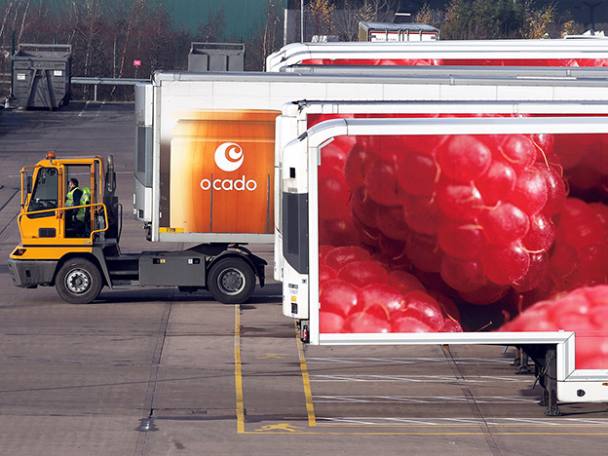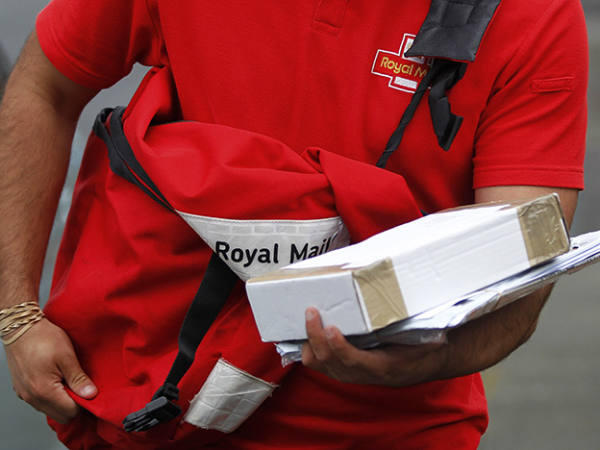- Net debt rises
- Capital expenditure to plummet
Profitability looks more elusive than ever at grocery technology company Ocado (OCDO) after it posted half a billion pounds of losses. The performance was worse than expected by analysts, as the cost of living crisis dragged down retail demand and costs soared. Investors marked the shares down by 9 per cent in response.
It doesn’t help that Ocado’s flagship revenue stream is going backwards. Sales at the retail joint venture with Marks and Spencer (MKS) fell by 4 per cent to £2.2bn and cash profits turned negative. Sitting at the premium end of the market, Ocado faces pressures from consumers trading down to cheaper supermarket competitors.
Weak shopper sentiment was seen in the decline in average basket value and basket size against last year. These metrics fell by 9 per cent and 12 per cent, respectively. On the plus side, active customer numbers rose by 13 per cent to 940,000. But this didn't lead to a big uptick in volumes – average orders per week were only up by 6 per cent.
There was better news across Ocado’s smaller divisions. UK solutions and logistics sales rose by 13 per cent to £803mn. The segment was the only one to post positive cash profits in the year. International solutions sales, meanwhile, more than doubled to £148mn after live sites rose from four to 12.
Alongside the weak retail performance, the other part of the story behind the loss was significantly higher depreciation, amortisation, and impairment charges. These rose by 46 per cent to £349mn on the back of further investment in platform technology and hardware and software implementation at customer fulfilment centres (ie, big warehouses).
Waverton Investment Management head of UK equity research Tineke Frikkee told Investors’ Chronicle that the planned roll-out of new technology innovations this year "looks very significant as it means future facilities will be cheaper and faster to build”.
While this is certainly good news for the company, progress could be hindered by the financial pressures it is under. Underlying cash flows are negative, although these are expected to improve by around £200mn this year. And management has guided for capital expenditure to fall to £550mn this year, a chunky decline from £797mn in 2022.
Shore Capital analysts argued that Ocado is cutting capital expenditure only “in order to prevent a more distressed position”. They added that they expect the company’s solvency ratios to continue to deteriorate this year. Not good.
Ultimately, there are too many problems which make us bearish. On top of the retail division's struggles can be added an expensive valuation, the potential need for further financing, and question marks around long-term international hopes. We reiterate our view that investors should steer clear of the shares. Sell.
Last IC View: Sell, 763p, 17 Jan 2023
| OCADO (OCDO) | ||||
| ORD PRICE: | 568p | MARKET VALUE: | £4.69bn | |
| TOUCH: | 566-568p | 12-MONTH HIGH: | 1,389p | LOW: 380p |
| DIVIDEND YIELD: | nil | PE RATIO: | na | |
| NET ASSET VALUE: | 223p* | NET DEBT: | 31% | |
| Year to 27 Nov | Turnover (£bn) | Pre-tax profit (£mn) | Earnings per share (p) | Dividend per share (p) |
| 2018 | 1.60 | -44.4 | -6.90 | nil |
| 2019 | 1.76 | -215 | -30.6 | nil |
| 2020 | 2.33 | -52.3 | -18.7 | nil |
| 2021 | 2.50 | -177 | -30.2 | nil |
| 2022 | 2.51 | -501 | -58.9 | nil |
| % change | +1 | - | - | - |
| Ex-div: | - | |||
| Payment: | - | |||
| *Includes intangible assets of £542mn, or 66p a share | ||||








